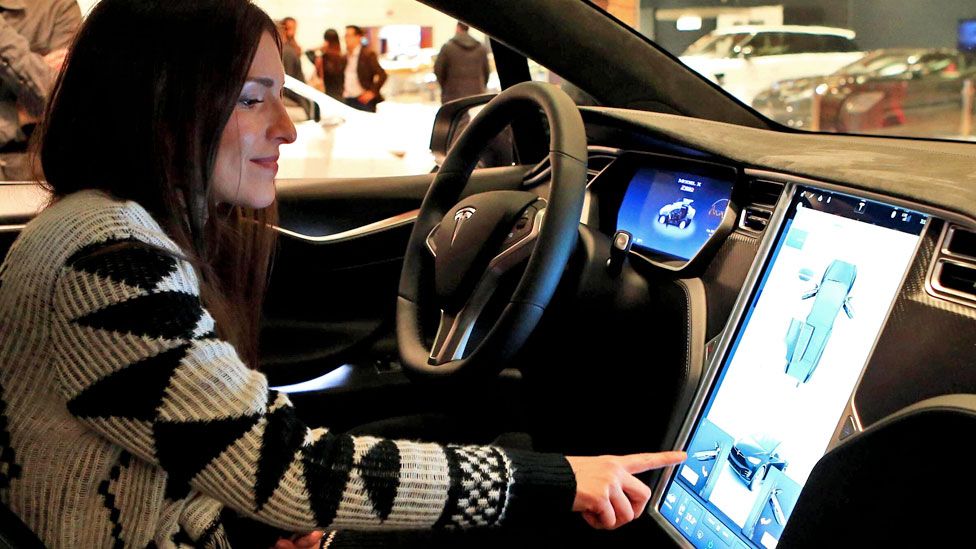Elon Musk's Tesla recalls two million cars over Autopilot defect
 Image source, Alamy
Image source, AlamyTesla is recalling more than two million cars after the US regulator found its driver assistance system, Autopilot, was partly defective.
It follows a two-year investigation into crashes at the firm owned by billionaire Elon Musk, which occurred when Autopilot was in use.
The recall applies to almost every Tesla sold in the US since the Autopilot feature was launched in 2015.
Tesla said it would send a software update "over the air" to fix the issue.
The update happens automatically, and does not require a visit to a dealership or garage, but is still referred to by the regulator as a recall.
Autopilot is meant to help with steering, acceleration and braking – but, despite the name, the car still requires driver input.
The US National Highway Traffic Safety Administration (NHTSA) said the recall was due to an issue with Autopilot's driver monitoring system, which detects whether the driver is paying attention.
This is meant to check things such as whether the driver has their hands on the wheel.
As part of what it has called an "extensive" two year investigation, the NHTSA reviewed 956 crashes where Autopilot was initially alleged to have been in use.
As a result of that investigation Tesla has announced this recall, and conceded that the system's controls "may not be sufficient to prevent driver misuse".
"Automated technology holds great promise for improving safety but only when it is deployed responsibly", the NHTSA wrote, adding it would continue to monitor the software once it was updated.
It comes a week after a former Tesla employee told the BBC he believed the technology was not safe.
Lukasz Krupski told the BBC: "I don't think the hardware is ready and the software is ready."
"It affects all of us because we are essentially experiments in public roads", he claimed.
It is the second recall this year affecting Tesla vehicles.
On Tuesday, the company defended the safety of Autopilot in a post on X (formerly Twitter) in response to a Washington Post article.
"Safety metrics are emphatically stronger when Autopilot is engaged than when not engaged" it wrote, pointing to statistics that suggested there were fewer crashes when the system was used.
"The data is clear: The more automation technology offered to support the driver, the safer the driver and other road users" Tesla said.
The BBC has approached the carmaker for comment.
Related Topics
-
-
Published5 December
-
-
-
Published30 November
-
-
-
Published20 July
-
